Resources
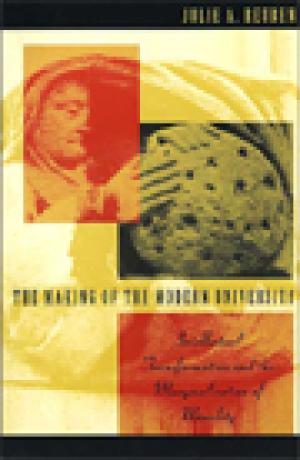
The Making of the Modern University: Intellectual Transformation and the Marginalization of Morality
What is the purpose of higher education, and how should we pursue it? Debates over these issues raged in the late nineteenth century as reformers introduced a new kind of university - one dedicated to free inquiry and the advancement of knowledge. In the first major study of moral education in American universities. Julie Reuben examines the consequences of these debates for modern intellectual life. Based on extensive research at eight universities - Harvard, Yale, Columbia, Johns Hopkins, Chicago, Stanford, Michigan, and California at Berkeley - Reuben examines the aims of university reformers in the context of nineteenth-century ideas about truth. She argues that these educators tried to apply new scientific standards to moral education, but that their modernization efforts ultimately failed. By exploring the complex interaction between institutional and intellectual change, Reuben enhances our understanding of the modern university, the secularization of intellectual life, and the association of scientific objectivity with value-neutrality. (From the Publisher)
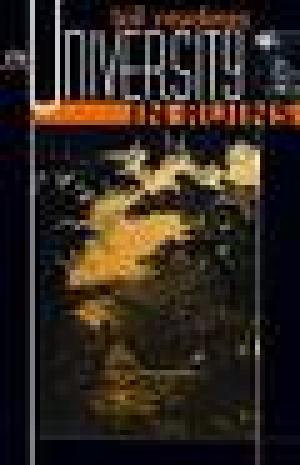
It is no longer clear what role the University plays in society. The structure of the contemporary University is changing rapidly, and we have yet to understand what precisely these changes will mean. Is a new age dawning for the University, the renaissance of higher education under way? Or is the University in the twilight of its social function, the demise of higher education fast approaching? We can answer such questions only if we look carefully at the different roles the University has played historically and then imagine how it might be possible to live, and to think, amid the ruins of the University. Tracing the roots of the modern American University in German philosophy and in the work of British thinkers such as Newman and Arnold, Bill Readings argues that the integrity of the modern University has been linked to the nation-state, which it has served by promoting and protecting the idea of a national culture. But now the nation-state is in decline, and national culture no longer needs to be either promoted or protected. Increasingly, universities are turning into transnational corporations, and the idea of culture is being replaced by the discourse of "excellence." On the surface, this does not seem particularly pernicious. The author cautions, however, that we should not embrace this techno-bureaucratic approach too quickly. The new University of Excellence is a corporation driven by market forces, and, as such, is more interested in profit margins than in thought. Readings urges us to imagine how to think, without concession to corporate excellence or recourse to romantic nostalgia within an institution in ruins. The result is a passionate appeal for a new community of thinkers. (From the Publisher)
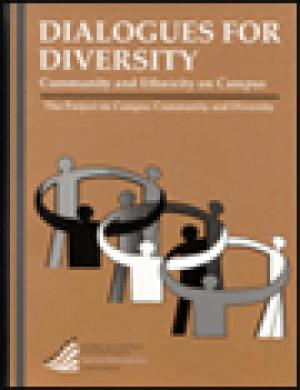
Provides organized materials intended to help groups of individuals on campus toward focused discussions of the role of ethnic diversity in the daily life of colleges and universities. The (welcome) aim is to help such groups find their own common ground, not to tell them what that common ground should be. Produced by the Project on Campus Community and Diversity of the Accrediting Commission for Senior Colleges and Universities of the Western Association of Schools and Colleges. (From the Publisher)
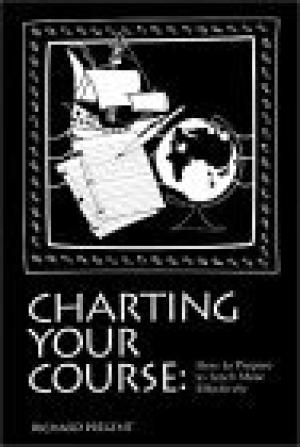
Good teaching begins with good preparation. But many instructors and teaching assistants are unsure about how to plan their courses in order to teach more effectively. Charting Your Course is a systematic approach to course planning that applies to all disciplines and course types. Prégent stresses analysis, planning, critical thinking, and careful evaluation and provides step-by-step examples of how actual new courses were designed and prepared. Whatever type of course you teach, use Charting Your Course to complement your current planning. (From the Publisher)
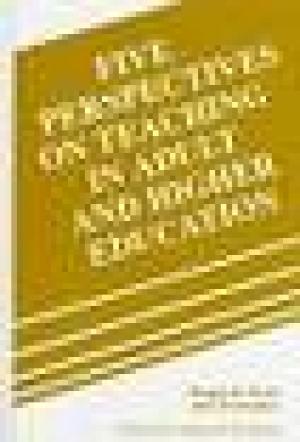
Presents five different perspectives on teaching adults, based on interviews with 253 teachers of adults in Asia and North America. After an overview of a general model of teaching and an introduction to the perspectives, Section II details the transmission, apprenticeship, developmental, nurturing, and social reform perspectives, presenting each as a legitimate way of teaching. Each perspective is described as an interrelated set of actions, intentions, and beliefs, and then illustrated within contexts of adult education practices. Section III comments on analytical tools and evaluation of teaching methods. (From the Publisher)
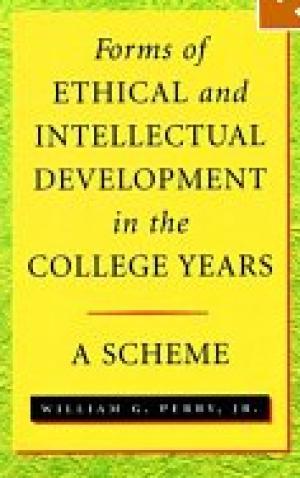
Since its original publication in 1970, this landmark book by William Perry has remained the cornerstone of much of the student development research that followed. Using research conducted with Harvard undergraduates over a fifteen-year period, Perry derived an enduring framework for characterizing student development - a scheme so accurate that it still informs and advances investigations into student development across genders and cultures. Drawing from firsthand accounts, Perry traces a path from students' adolescence into adulthood. His nine-stage model describes the steps that move students from a simplistic, categorical view of knowledge to a more complex, contextual view of the world and of themselves. Throughout this journey of cognitive development, Perry reveals, the most significant changes occur in forms in which people perceive their world rather than in the particulars of their attitudes and concerns. He shows ultimately that the nature of intellectual development is such that we should pay as much attention to the processes we use as to the content. In a new introduction to this classic work, Lee Knefelkamp - a close colleague of Perry's and a leading expert on college student development - evaluates the book's place in the literature of higher education. Knefelkamp explains how the Perry scheme has shaped current thinking about student development and discusses the most significant research that has since evolved from Perry's groundbreaking effort. Forms of Ethical and Intellectual Development in the College Years is a work that every current and future student services professional must have in their library. (From the Publisher)
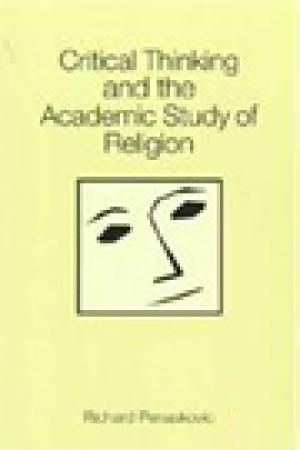
This work responds to a renewed emphasis on teaching in the academy. Written from the perspective of a classroom teacher, it is a practical application of the principles behind the Critical Thinking movement to the study of religion. Emphasizing that the acquisition of critical thinking depends less on what is taught than on how it is taught, the author presents concrete examples from his own experience to illustrate a student centered approach to teaching. By demonstrating how the study of religion contributes to the development of critical thinking - through the acquisition of problem-solving, decision-making, and metacognitive skills - Penaskovic suggests its value to a broader liberal arts curriculum as well. Both a theoretical review of Critical Thinking and a "nuts-and-bolts" manual on how it can be used and assessed in the classroom, this work will challenge new and veteran teachers alike to re-examine and renew what they do in the classroom. The book includes a selected, annotated bibliography on Critical Thinking. Every teacher of religion will want to read this book. (From the Publisher)
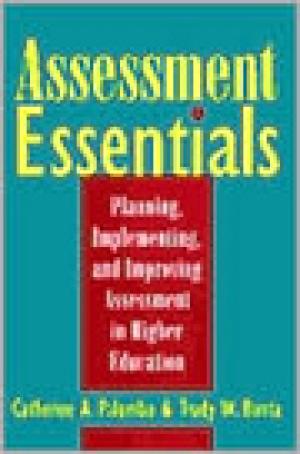
Assessment Clear and Simple is "Assessment 101" in a book -- a concise, step-by-step guide written for everyone who participates in the assessment process. This practical book helps to make assessment simple, cost-efficient, and useful to the institution, while at the same time meeting the requirements of accreditation agencies, legislatures, review boards, and others. Assessment Clear and Simple can help your institution employ assessment as a powerful instrument for improvement and provide a basis for wiser planning, budgeting, and change in curriculum, pedagogy, staffing, programming, and student support. (From the Publisher)
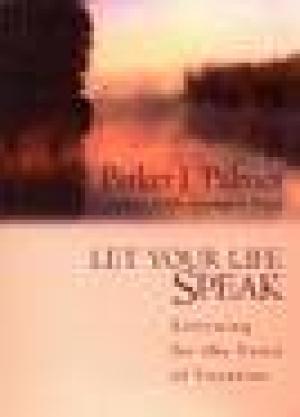
With wisdom, compassion, and gentle humor, Parker J. Palmer invites us to listen to the inner teacher and follow its leadings toward a sense of meaning and purpose. Telling stories from his own life and the lives of others who have made a difference, he shares insights gained from darkness and depression as well as fulfillment and joy, illuminating a pathway toward vocation for all who seek the true calling of their lives. (From the Publisher)
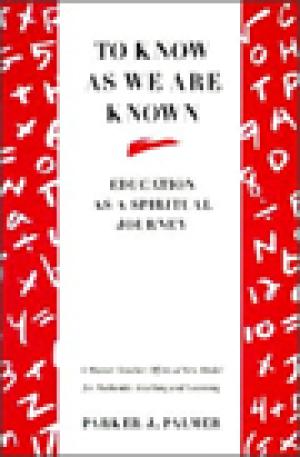
This primer on authentic education explores how mind and heart can work together in the learning process. Moving beyond the bankruptcy of our current model of education, Parker Palmer finds the soul of education through a lifelong cultivation of the wisdom each of us possesses and can share to benefit others. (From the Publisher)